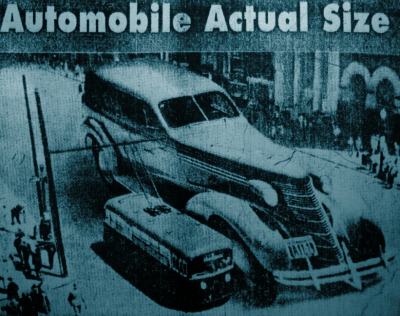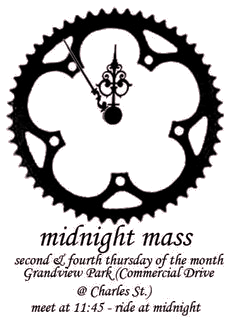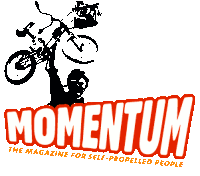Translink insists on looking at buses separately from the public transportation system
great article, this is why I link to the Republic here...
By Kevin Potvin
With cut-backs to service looming, only the bus part of the system is scrutinized for costs
Let’s state the obvious: a street or a highway is completely useless if you don’t have wheels on which to ride over it. As an installation of public investment, a network of roads is only a half-done job. The point of all the shared public expense in this massive installation is to enable citizens and cargo to move around. Its construction has come at incalculable cost. Just consider the value of land alone that is taken up with streets. Add in the thousands of dollars for every stop sign, parking sign and safety sign, the hundreds of thousands of dollars for every set of traffic lights, the tens of millions for all the street lights and the hundred or so million for the water run-off system under the streets. Consider the annual costs of painting lines, rebuilding curbs, removing snow and street cleaning. Throw in the enormous costs of policing traffic, the court system, the price for a rapid response emergency crash system complete with fire trucks and ambulances no more than minutes away from anywhere, and add on the hospital costs of all those injured in the everyday operation of the road system.

All of that, and still, the job is incomplete because the whole massive installation, surely amounting to billions for Vancouver alone, is utterly useless as it stands. One still needs to have some means of conveyance to give the whole enormously expensive system any value at all.
It is the running of buses through the road system that completes the picture, that finally finishes the job and gives the public any value out of the whole works. As a proportion of the total that’s been invested already and the ongoing maintenance and service costs, adding buses amounts to probably less than 1% more when everything from fire trucks to hospitals to police and snow removal are considered. Without buses, it’s as though someone built 99 feet of a 100 foot bridge and can’t find the will to build that final foot that finally makes the whole bridge worthwhile. A network of bus routes and a sufficient number of buses running through it is not an add-on that can be considered or rejected, it is the sine qua non that delivers to the investors—the public—the value promised in all the funds collected from them over the decades. A public road system without a public means to put it to use is like a fine expensive bicycle without any wheels. Nice so far, but useless.
Of course, a lot of people have cars, and so the road system is rendered useful to them. The final 1% of the job that makes all the difference between an expensive public system useful to the public that built it and a completely useless waste of billions is to be supplied by private individual investors. It’s the equivalent of building at great public expense a massive health care system and then restricting access exclusively to those able to pay an expensive private access fee. But because the buses were the final part of the whole public road installation and because we’ve gone on so long thinking of buses as an add-on to an otherwise complete job, nobody anymore thinks of buses as essential to the concept of the public transportation system. One need only recall that the road system was installed first and then everybody had to buy private cars to use it, to appreciate the enormity of the betrayal. It wasn’t as though everyone already had a car and demanded the construction of roads to use them on.
It is in this context through which reports of Translink’s funding shortfalls should be viewed. Translink is the public agency responsible for the roads and the provision of buses to be used upon them. Once the roads were built, the provision of an appropriate level of bus service has perennially been a bone of contention. The final 1% of the total cost of a public transportation investment—that mere 1%—has been the downfall of the whole idea. Now there are proposals to reduce bus service, cancel routes, shorten the service day and massively increase fares, all because the bus provision part of the system is said to lose money. Never mind that the street light part of the system “loses” a lot more money, as does the street sign part, the land-owning part, the water run-off part, the ambulance part, the hospital part, the snow removal part and so on.
Why is there no talk of removing traffic lights if money is tight? These do nothing but lose money also. The roads themselves should just as whimsically be considered for ripping up, the land beneath them sold, so much do roads do nothing but lose money. But only the bus portion of the system is scrutinized for its costs, and is expected to generate revenue to cover those costs. Drivers of cars are outraged they will be asked to pay tolls to cross the newly reconstructed Port Mann Bridge—cost: $3 billion—even though bus riders have been paying far more in tolls to use the public roads everyday since forever.
We’re promised by the provincial government that bus service across the new Port Mann Bridge could someday in the future be added, as though the bridge will have delivered its public value in total even without the provision of a bus service across it. Even if a resident of Langley got the global climate message and wanted to make an effort to change and stop using a carbon-burning car, the lack of the final part of the system—wheels with which to roll over the terrifically expensive road system between Vancouver and Langley—they could not do so. The bus part was left off the agenda in the end, like a roof being left off a palace, rendering it useless.
It is in this view absurd that the public must now agitate for buses to make the whole road system they already built finally of value to them. It is a moral outrage that what buses exist require an exorbitant toll for every use of them. It is unethical in the extreme for bureaucrats and political leaders alike to portray the bus service as an extra add-on to a road system, subjected to its own separate accounting, when no other part of the system is so separately scrutinized. And it is reprehensible for any public official to dare suggest any measure that reduces already deplorable bus service with the environmental cost of the private car alternative so severe, so obvious and so broadly understood.
Everyone should be able to ride without a toll over the entire regional road network since we already all paid for it. It’s a nasty trick to deliver 99% of the deal and withhold for ransom the important final 1% of the hardware. Imagine being sold a car and then finding out the wheels are extra. That’s the insult the public has been slapped with for decades. Only in defeat and exasperation, not to mention at great additional personal expense, have those with the means given up and bought a car.
No public official should escape profound shame for suggesting tolls for buses are fair, let alone that they should be raised, and for suggesting yet more public investment in infrastructure like roads and bridges without considering their primary purpose of delivering the wheels with which to make them of any value to the public.
Every time you want to travel the roads and there is no bus for you, you are profoundly betrayed, and every time you are made to pay to board the bus is the ransom of a hostage captured and roasted alive by their very own government. Buses are the road system; it is the cars that are the extra add-on.
Labels: bus, car cult, public space, republic, taxes
 Vancouver Critical Mass
Vancouver Critical Mass












0 Comments:
Post a Comment
Please be respectful and constructive. If you want to vent or hate do it somewhere else. Violent, threatening and abusive comments will be removed. Please read other posts and discussion to avoid duplicate questions.
<< Home